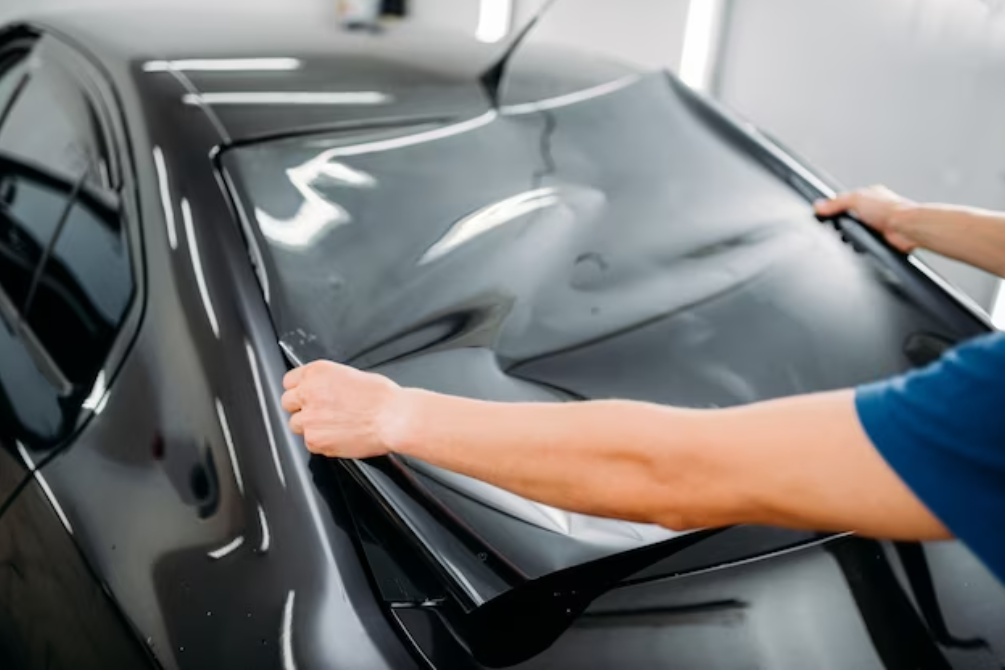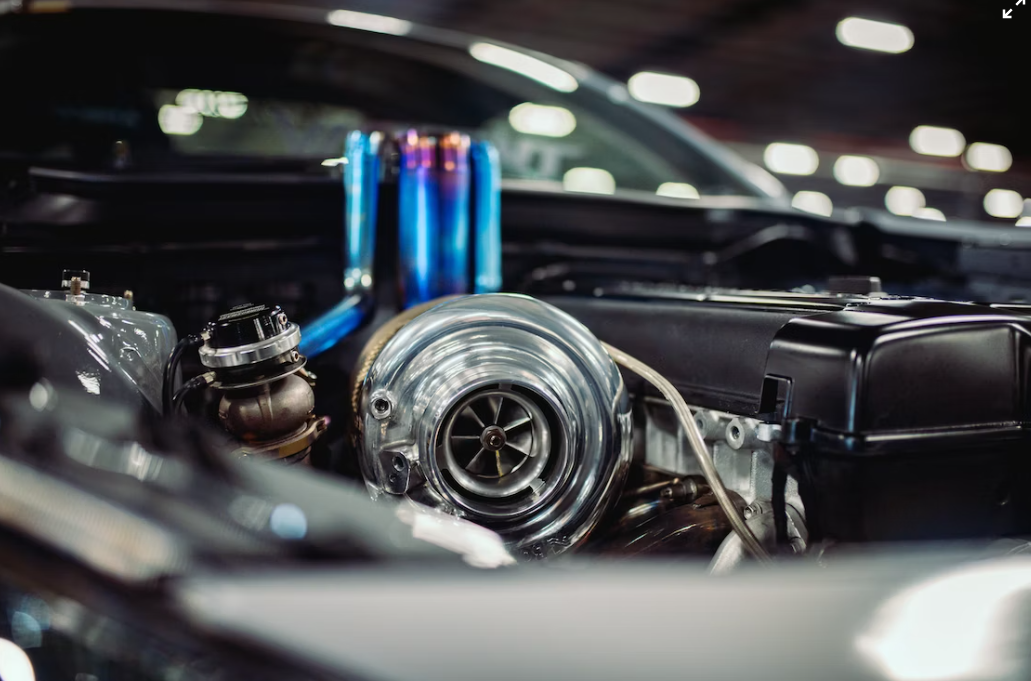How To Clean Your Engine Bay?
The engine bay often remains neglected during car cleaning routines, perhaps due to its concealed nature. Yet, beneath this overlooked space lies a breeding ground for dirt, grime, and grease, posing potential risks to your vehicle's functionality. Accumulation of such debris can lead to various issues like obstructing air intake, engine malfunction, and diminished battery performance. Addressing these concerns through proper cleaning not only safeguards against potential damages but also facilitates easier identification of any underlying issues in a tidier environment.

So, how does one effectively clean the engine bay? Allow us to guide you through the process, ensuring your vehicle's vital components remain in optimal condition.
Frequently Encountered Contaminants In Engine Bays: Dirt, Debris, And Oil
Dirt/Mud
Among the most prevalent contaminants are dirt and mud, often making their way into the engine bay through puddles, off-road excursions, and everyday encounters with debris.
Engine Oil
Engine oil tends to leak around gaskets, burst from hoses, and spread across the engine's surface during oil changes. Additionally, it can be propelled into the engine bay from the ground.

Transmission Fluid
Similar to engine oil, transmission fluid may spray across the engine bay in the event of a catastrophic incident. However, if a substantial spray of transmission fluid is observed, there are likely more pressing concerns than maintaining a clean engine bay.
Brake Fluid
Given the proximity of the brake master cylinder to the top of the engine in most vehicles, spills and splatters of brake fluid can swiftly soil the engine bay.
Coolant
Instances of radiator overheating leading to the expulsion of scalding coolant over the hot engine bay are familiar to many. The ensuing steam and vibrant liquid eruption often leave the bay, resembling the aftermath of an extraterrestrial encounter.
Enhanced Performance
Maintaining a clean engine bay is crucial for optimizing car performance. Accumulated dirt and debris can obstruct airflow, affecting engine efficiency. Prompt removal of such obstructions from easily accessible areas like the grill and bumper is essential to ensuring smooth operation.
Battery Maintenance
Regular cleaning of battery terminals contributes to improved battery performance. Debris buildup, if left unattended, can hinder the function of vital components such as the alternator and weaken belts, especially for vehicles frequently subjected to off-road conditions.

Increased Resale Value
Although hidden from immediate view, the condition of the engine bay significantly influences a vehicle's resale value. A well-maintained engine bay signals diligent care, potentially commanding a higher price from prospective buyers.
Peace of mind
Regular inspection and cleaning of the engine bay provide reassurance by minimizing the risk of overlooked issues. Clearing drain holes and removing debris prevent potential damage, such as water ingress through heater vents, ensuring uninterrupted vehicle operation.
Enhanced Visibility
Routine cleaning improves visibility within the engine bay, facilitating the early detection of leaks and other concerns. Clearing away debris makes it easier to pinpoint and address issues, ultimately contributing to overall vehicle maintenance.
Interested in sprucing up your engine bay but unsure where to begin? Before diving in, gather a few essential supplies to ensure a thorough cleaning process. It's important to mention that for electric or hybrid vehicles, entrusting the cleaning of the under bonnet area to a professional is recommended.
Essential Supplies for Engine Bay Cleaning:
- Microfibre towels
- Disposable gloves
- Synthetic brushes (or toothbrush)
- Cleaning wipes
- Soapy water
- Pipe cleaners
- Vacuum cleaner
- Trim restorer
Precautionary Measures:
- Ensure Engine Coolness: Wait until your engine has cooled before initiating the cleaning process. Working on a cool engine not only ensures safety but also facilitates the removal of loose dirt and debris without the risk of burns. Under no circumstances should you attempt to clean a hot engine, as it can lead to injuries and potential damage.
- Component Protection: Safeguard electrical components by disconnecting the car battery before cleaning, if feasible. However, exercise caution and ensure you have the necessary tools and backup data to restart your vehicle, as modern cars may require specific shutdown and restart procedures. Be mindful to keep water away from sensitive parts such as the alternator and spark plugs.
Cleaning Procedure:
- Dry Surface Cleaning: Begin by vacuuming away dirt and using synthetic brushes or toothbrushes to tackle stubborn debris. Wearing disposable gloves can help keep your hands clean during this process.

- Wet Surface Cleaning: Once dry cleaning is complete, wash both the interior and exterior of the bonnet with water, steering clear of electrical components. Soapy water can be sprayed on painted surfaces for dirt removal, followed by wiping with microfiber cloths. Utilize pipe cleaners for hard-to-reach areas and cleaning wipes for remaining dirt, concluding with a final rinse if needed.
- Engine Cleaning: Address the engine itself by using cleaning wipes to remove oil or grease and employing toothbrushes or pipe cleaners for intricate spots. Dry all surfaces with microfiber cloths, avoiding the use of hose pipes to prevent damage.
- Detailing: Enhance the appearance by applying trim restorer to rubber or plastic surfaces or spray wax on the hood for added shine.
- Battery Reinstallation: If the battery was disconnected, carefully reinstall it. However, exercise caution and refer to professional assistance if unsure.
By following these straightforward steps, you can ensure a pristine engine bay, free from obstructions and debris. If any issues arise during the cleaning process, seek assistance from your local Halfords Autocentre for professional evaluation and, if necessary, replacement parts. Explore our extensive range of car parts online by entering your vehicle registration to find the perfect fit for your needs.
There are some tips you should follow:
- Ensure that your engine bay is washed when your vehicle has cooled down. Washing it while hot could result in steam production, potentially leading to plastic cracking, wire corrosion, or personal injury.
- Opt for clothing with soft surfaces to prevent any scratching of the vehicle. For instance, avoid wearing jeans that may contain metal bits that could cause damage.
- If hand-washing your engine bay, employ the two-bucket method to prevent the reintroduction of dirt, contaminants, and debris into the cleaned area.
How Much Does Engine Bay Cleaning Cost?
The expense is minimal, requiring only a hose and soap, typically totaling around $15 to $20.
Is water spraying safe for your engine?
Given the engine bay's exposure to wet conditions like rain and puddles, it's generally safe to wash your engine. However, ensure caution with water pressure to prevent damage to plugs or dislodgement.
Can I Use a Pressure Washer on My Engine Bay?
Yes, a pressure washer is suitable for cleaning the engine bay, but careful pressure adjustment is essential. Excessive pressure can harm non-metal components like hoses and wires. Stop immediately if you notice any dangling or loose parts during cleaning.
Neglecting engine bay maintenance poses risks to vehicle functionality. Proper cleaning enhances performance, boosts resale value, and provides peace of mind. Follow the outlined steps and precautions for effective cleaning, ensuring optimal vehicle condition and longevity. Whether seeking expert advice or DIY cleaning, investing in engine bay care is crucial for maintaining functionality and appearance.
Click on the following link to read another blog post: How To Wash A Car?


.png)







